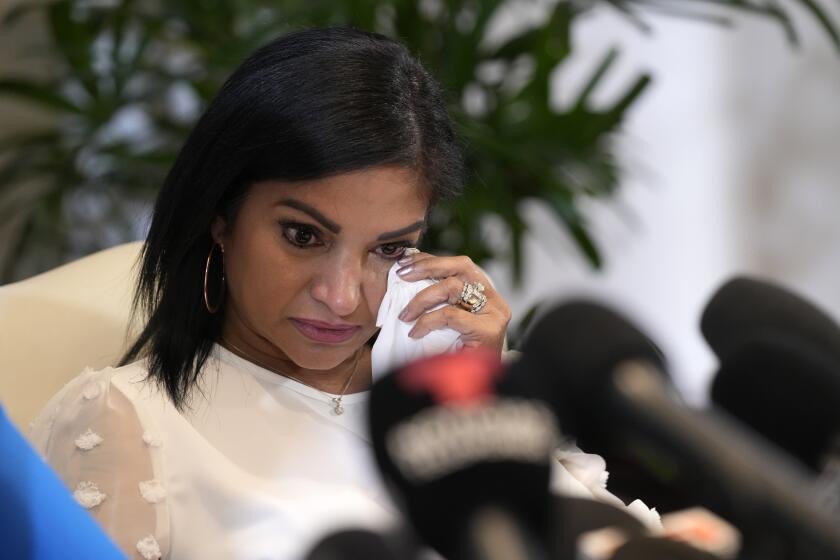Hebrew language charter school considered in Santa Clarita Valley
A proposal to open the first Hebrew language charter school in the state will be considered Wednesday by school trustees in the Santa Clarita Valley, some of whom have raised concerns that the institution would violate separation of church and state.
Backers of the proposed school, to be called the Albert Einstein Academy for Letters, Arts and Sciences, say such worries are unfounded and that the campus would not have a religious base and would not have a relationship with a synagogue.
It would be open to students of all faiths, said Rabbi Mark Blazer of the Newhall-based Temple Beth Ami, who is spearheading the school.
“We wanted to be sure that regulations were adhered to, and were concerned about the religious aspect . . . that it would not be perceived as a religious-based school,” said Paul Strickland, president of the governing board for the William S. Hart Union High School District.
The Hebrew language charter school would be among a handful in the country, and supporters said they have redoubled their efforts to assure the school district and community that the school’s focus would be Hebrew and other languages, promoting an appreciation for cultural diversity and giving students an edge in preparing for college.
But not everyone is convinced.
“By requiring the students study Hebrew, I think you’re effectively limiting (who would apply),” said Dennis King, a former Hart school board member of 20 years. “So it’s sort of an ethnic school. It’s a school that appeals to a particular culture. . . . I suspect 95% of the kids will be Jewish.”
Blazer said he and other school leaders have worked around the clock to amend and tweak the wording of the charter in order to “make clear that there is nothing religious.”
Proponents of the charter school had initially wanted to give students the day off to mark Jewish, Christian and Islamic holidays. But this raised concerns among some members of the Hart school district, which currently does not honor the holidays of all religious faiths. So the school’s charter has been revised so that no religious holidays would be honored, Blazer said.
“It’s been a challenge,” Blazer said Tuesday, his tone a mixture of exhaustion and exasperation. “Every time we think we’re there, there’s something else. We’ve tried our best.”
If approved, the school would open this fall with 225 students, adding 75 students each year until reaching full capacity at 450. The school would start with seventh through ninth grades, expanding to the 12th grade in the future.
A public lottery would be held in May to select enrollees.
Interest in the school has been overwhelming, Blazer said, with more than 350 requests for information and about 200 people attending an information night earlier this month.
Blazer said the impetus for the school came from widespread interest of local parents to have their children learn Hebrew. There are currently no Hebrew language programs at public schools. Other languages, including Arabic, Greek and Latin, would also be offered.
“We have to do things to help stimulate education, and helping people who are willing to take a chance on something different. . . . I think it’s great,” said Bruce McFarland, a veteran community activist and founder of Santa Clarita for Separation of Church and State. “If that school spurs students to strive to be more vigorous for their education, if they work harder because of it, then I think it’s great.”
Edward Gika, who has been tapped as the school’s founding principal, said he could not resist being on the front lines of such a project.
“This is such a lure. The philosophy and the vision. . . . I just couldn’t say no to that,” said Gika, who currently serves as dean of students and English department chairman at Montclair College Preparatory School in Van Nuys.
Blazer said he found the perception “that only Jewish people want to learn Hebrew” offensive. And Gika said it was “short-sighted to make an assumption” about the type of students the school might attract.
“We’re hoping for great diversity,” Gika said. “I don’t think language and religion are that closely associated -- at least, not in what we’re trying to do.”
More to Read
Sign up for Essential California
The most important California stories and recommendations in your inbox every morning.
You may occasionally receive promotional content from the Los Angeles Times.











